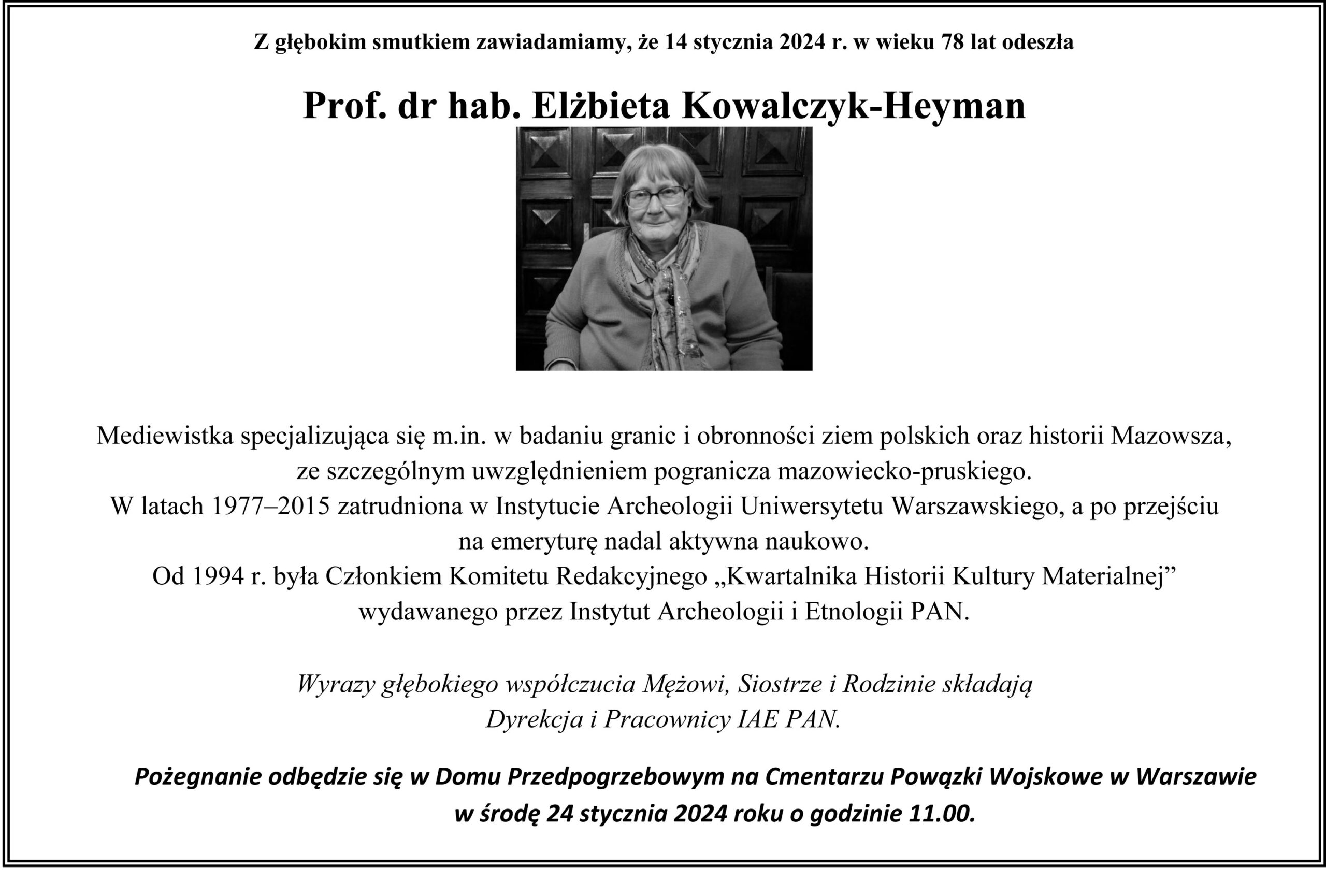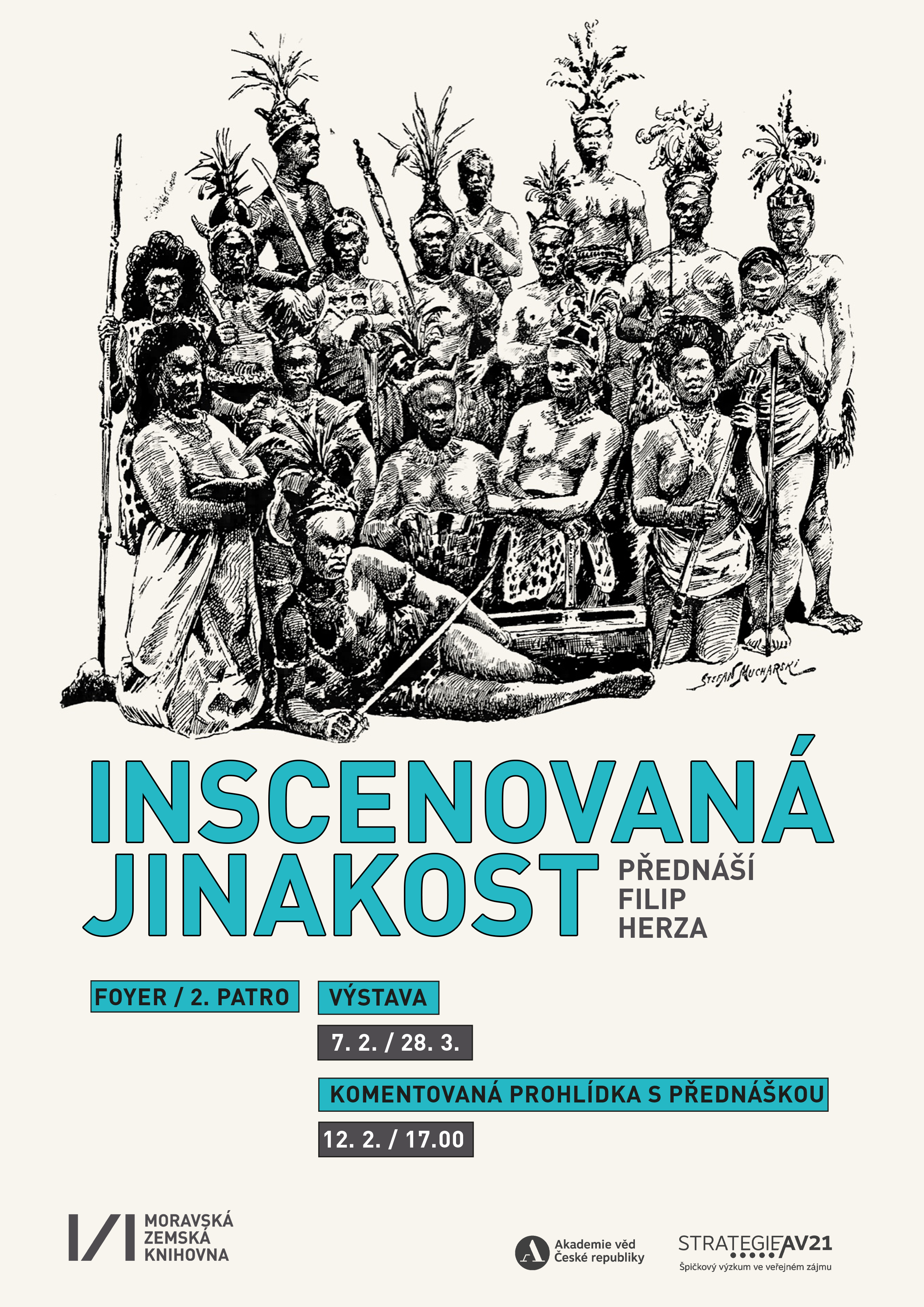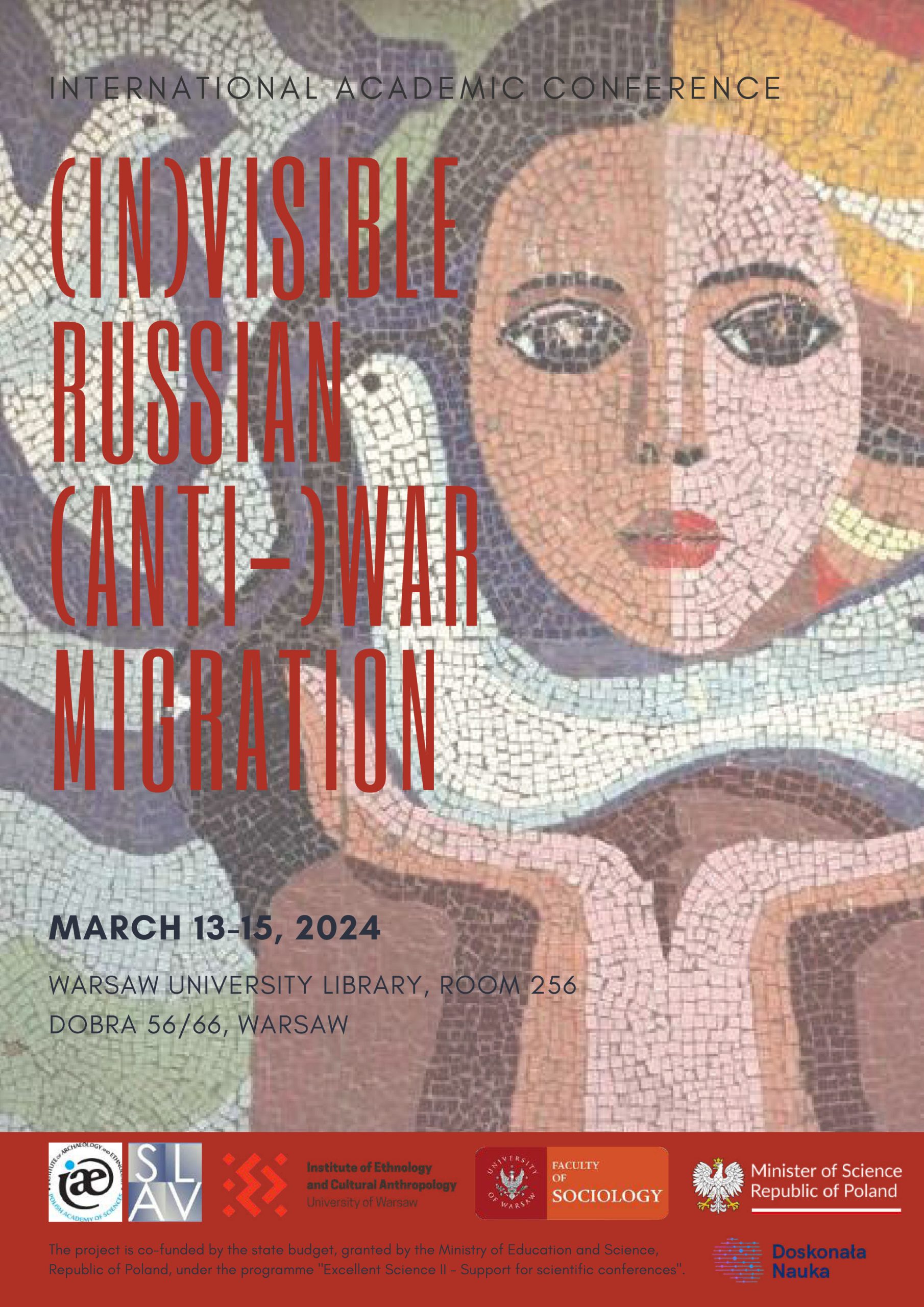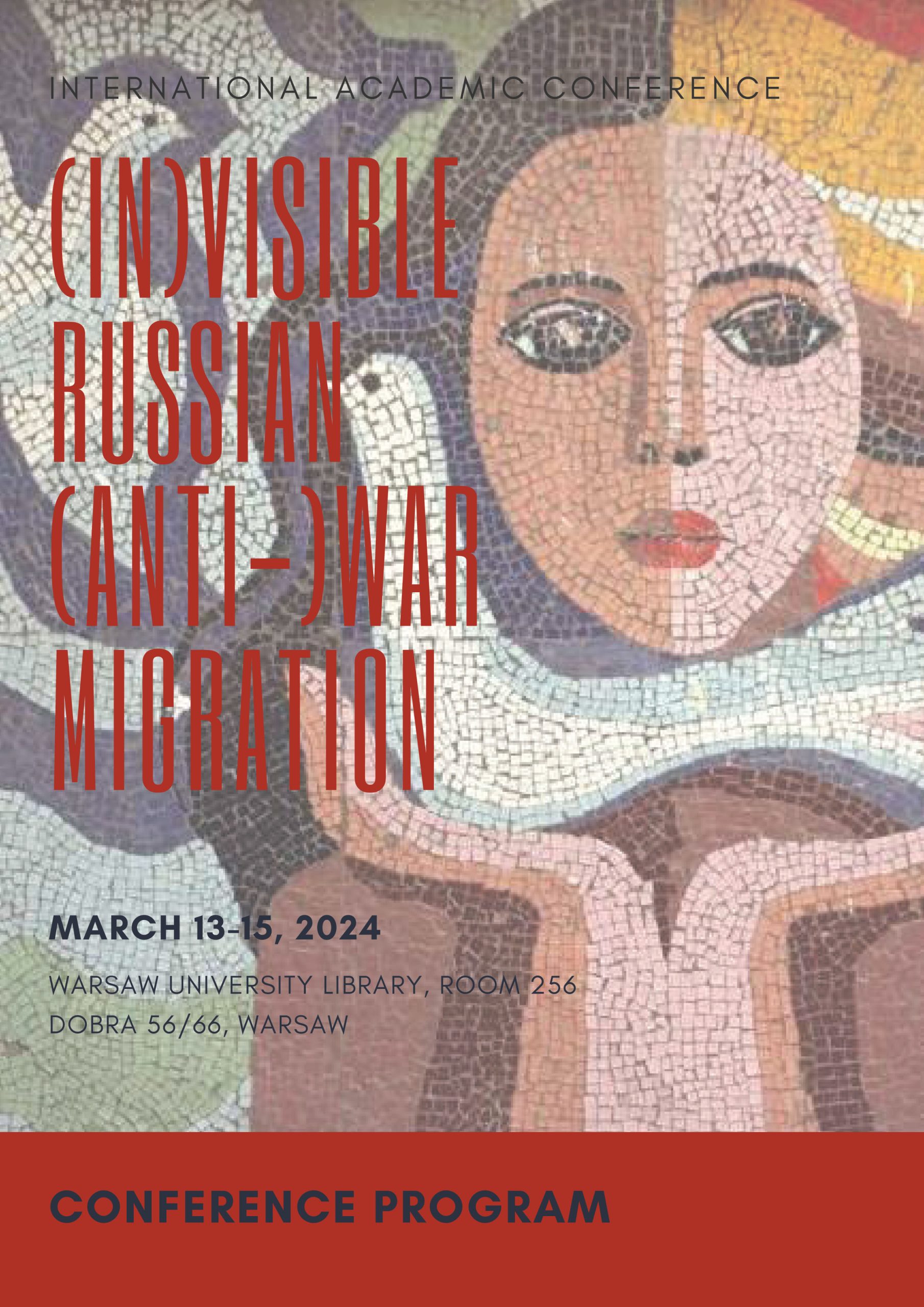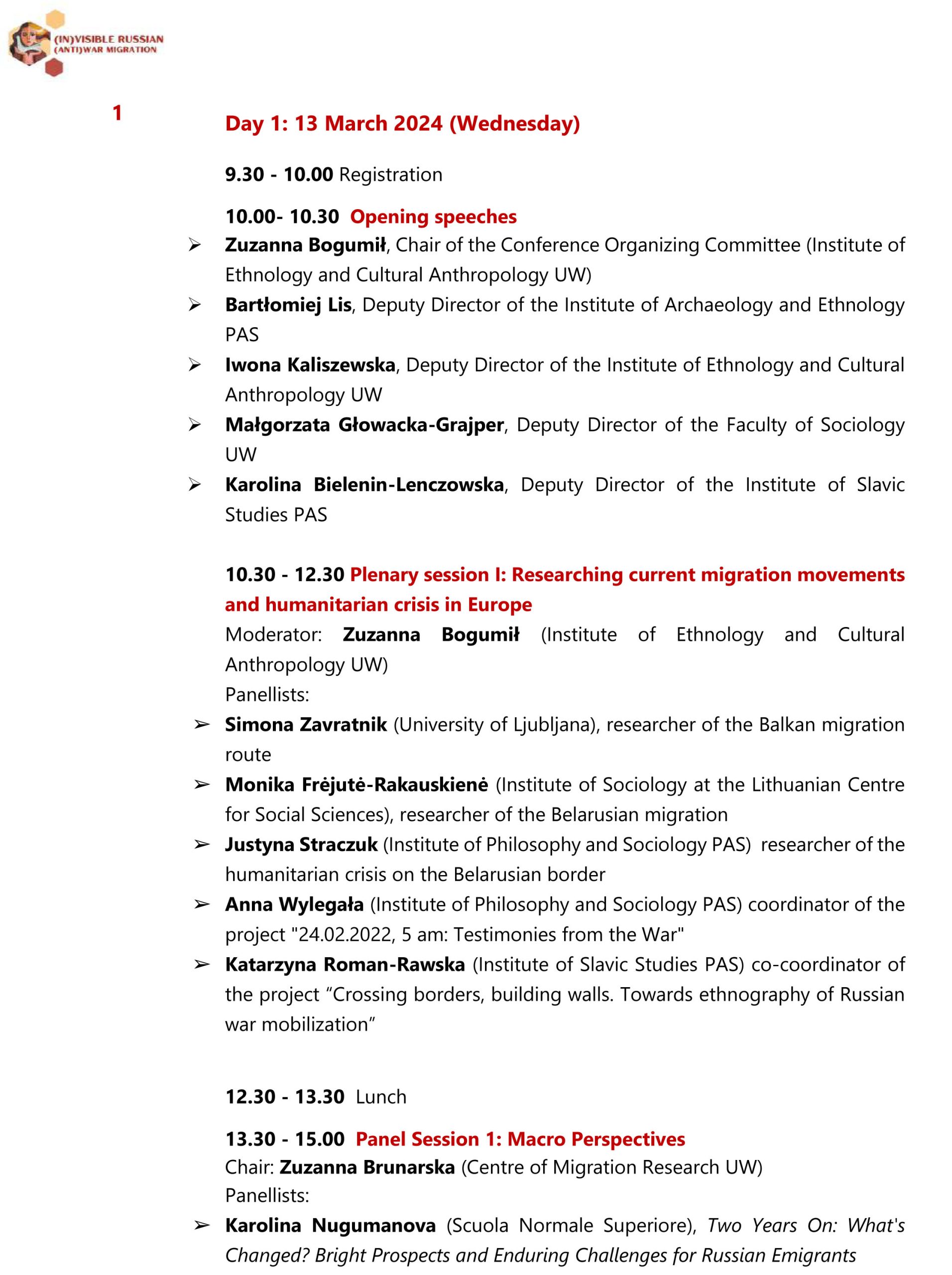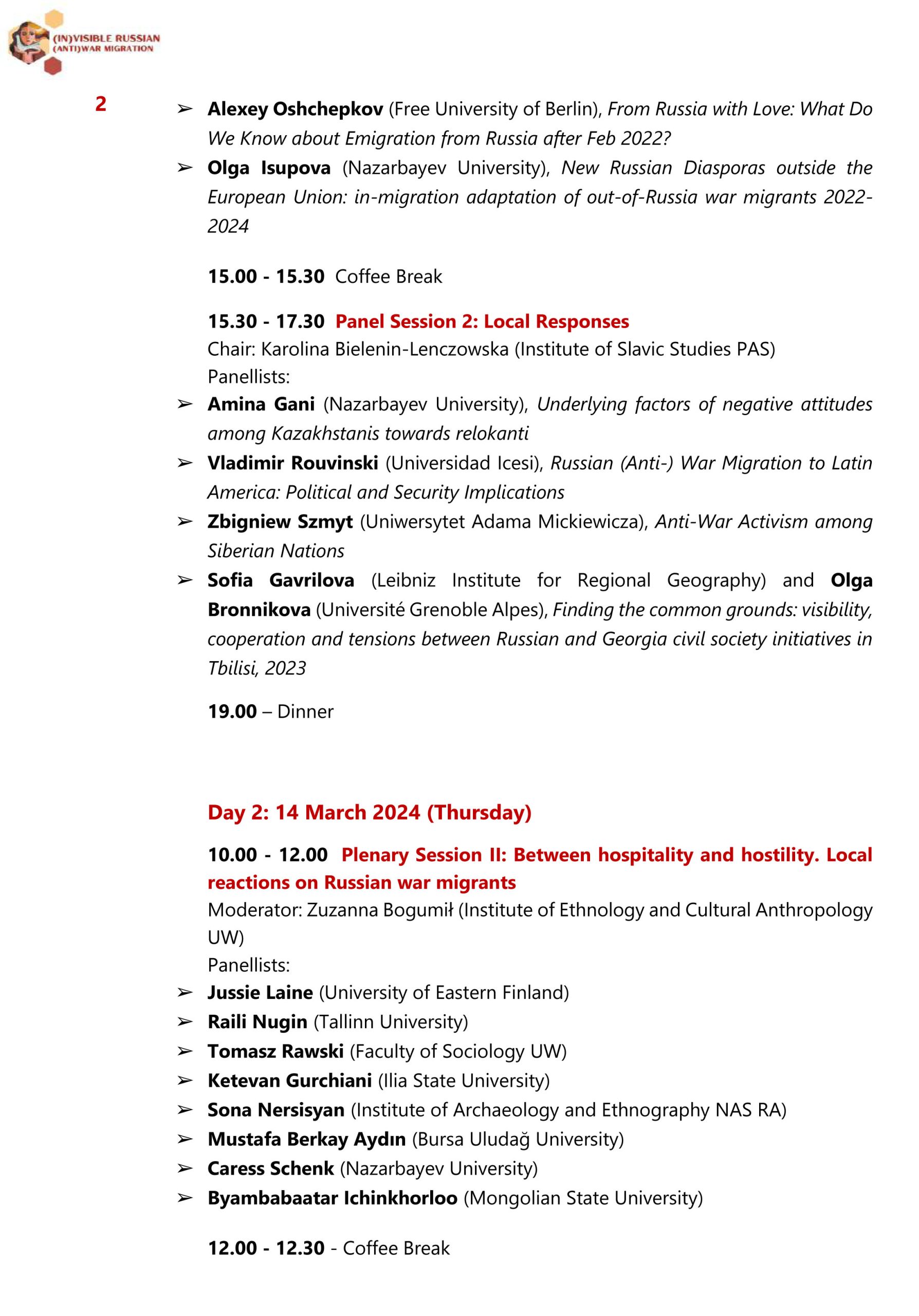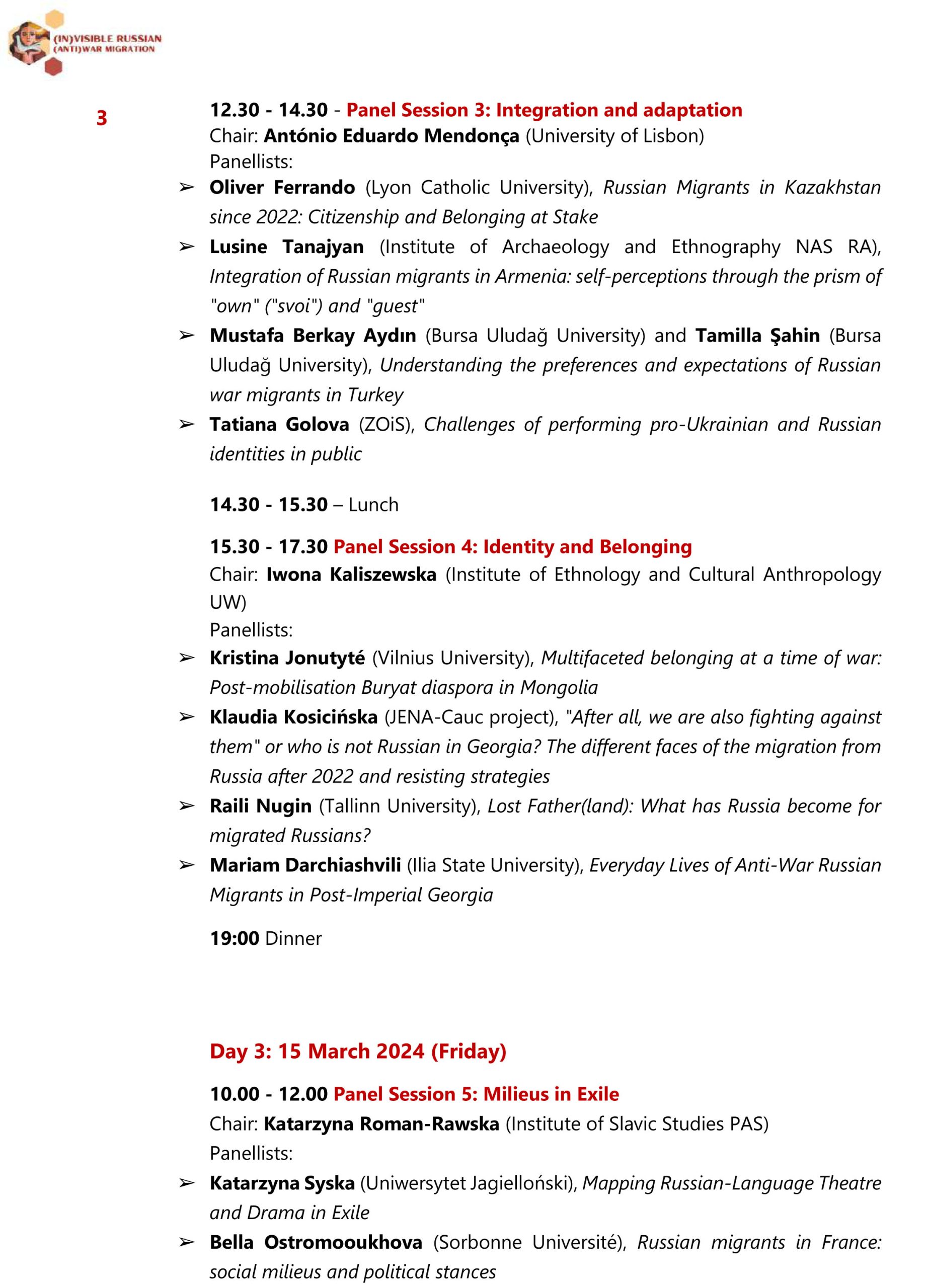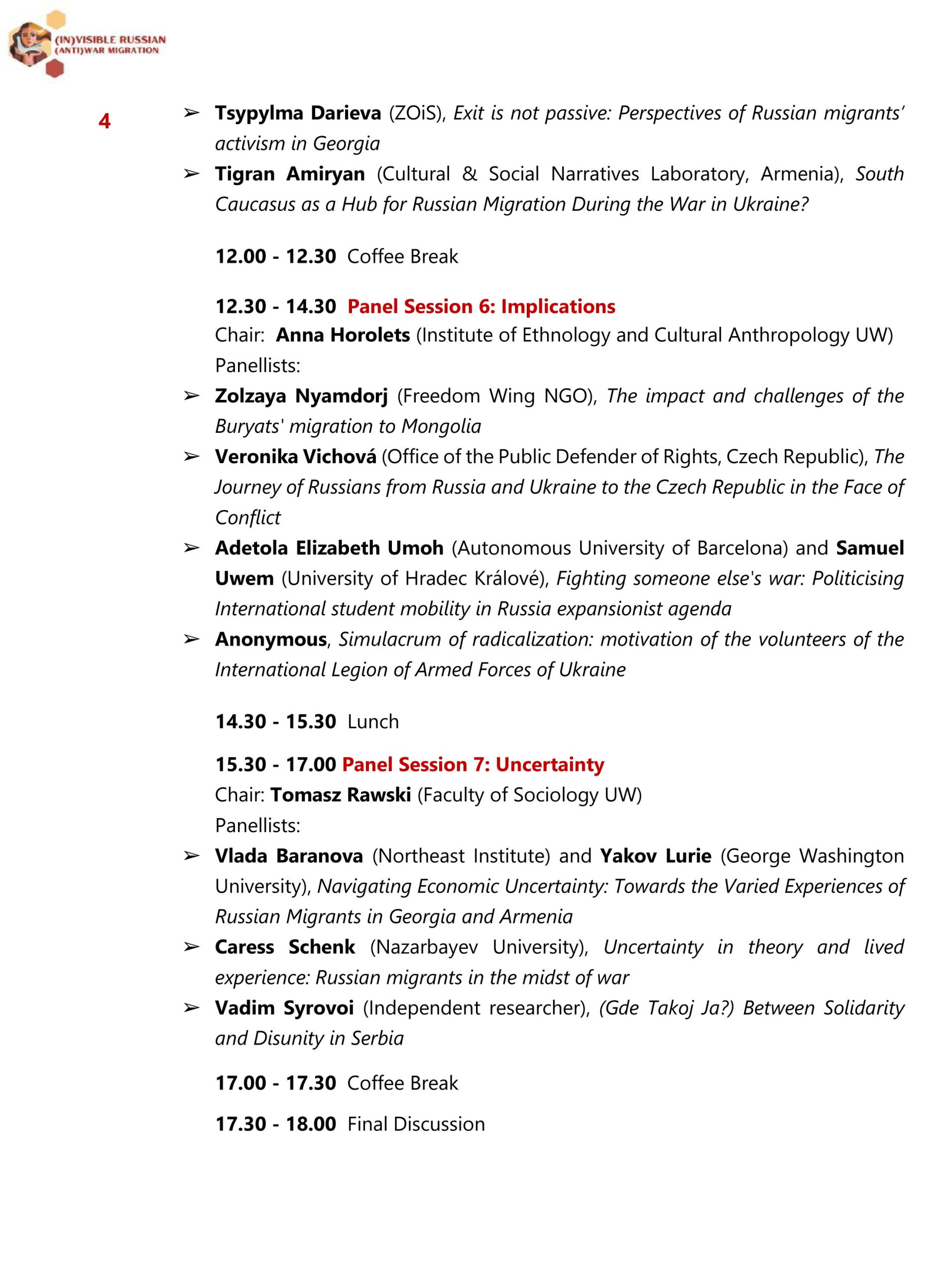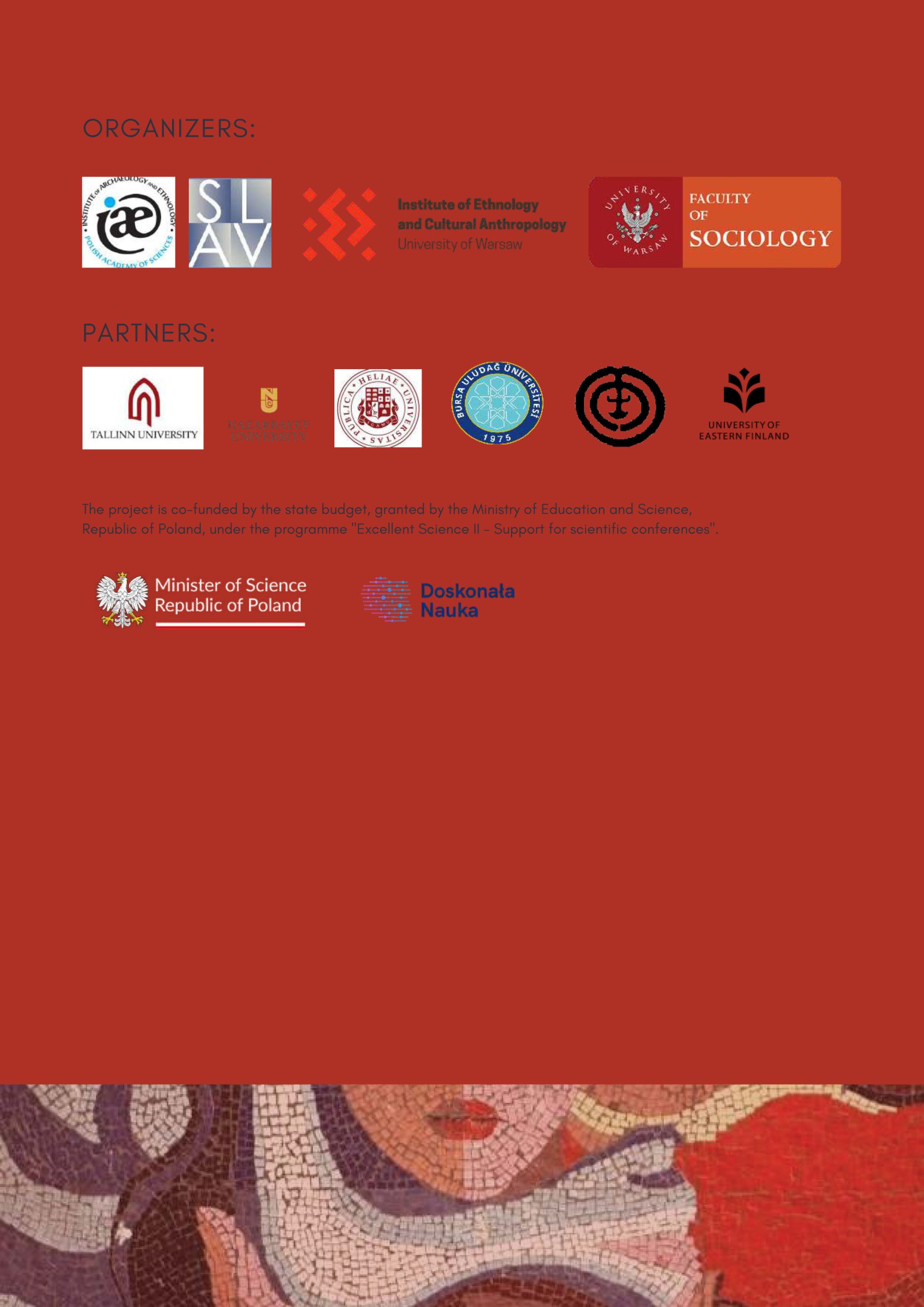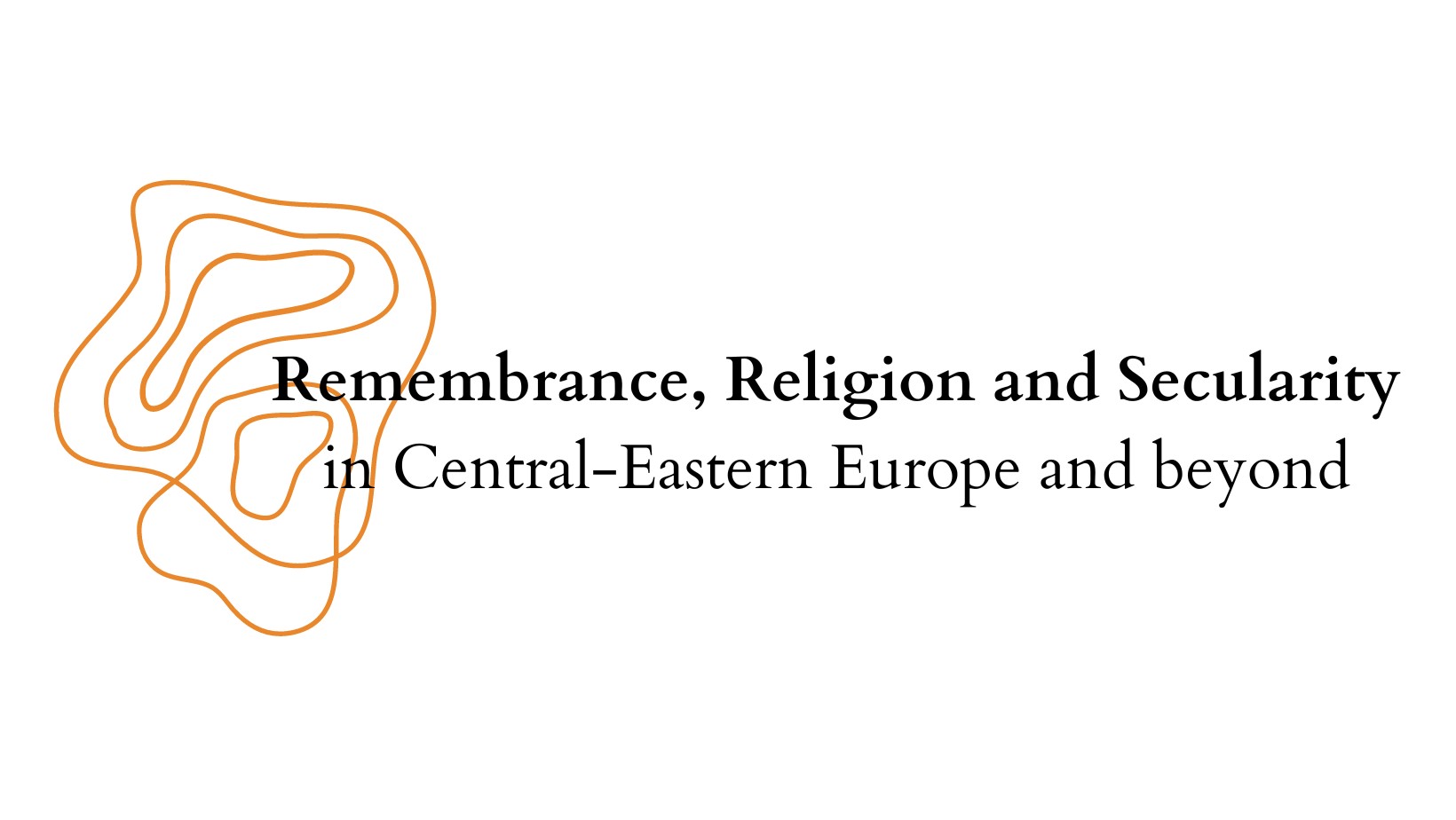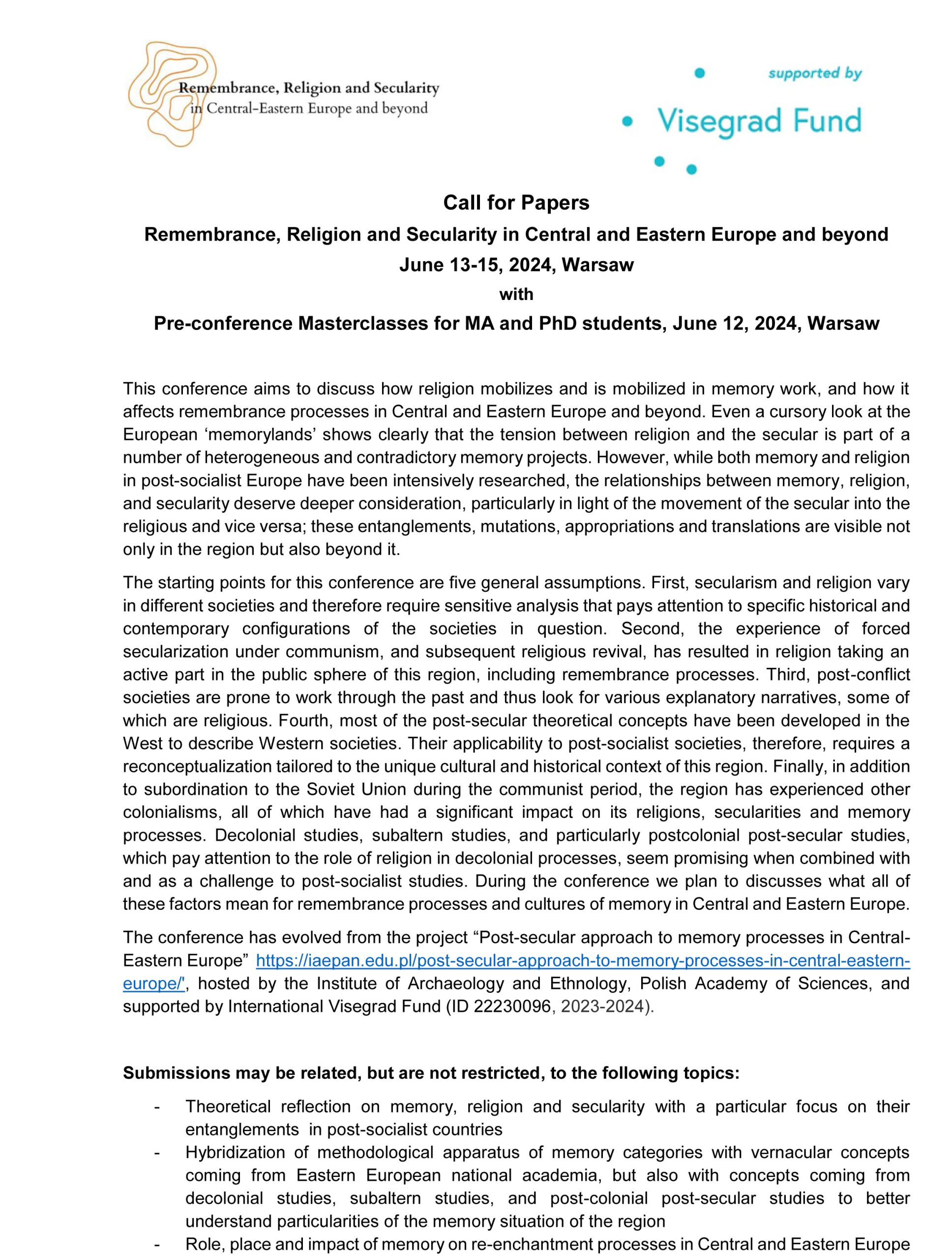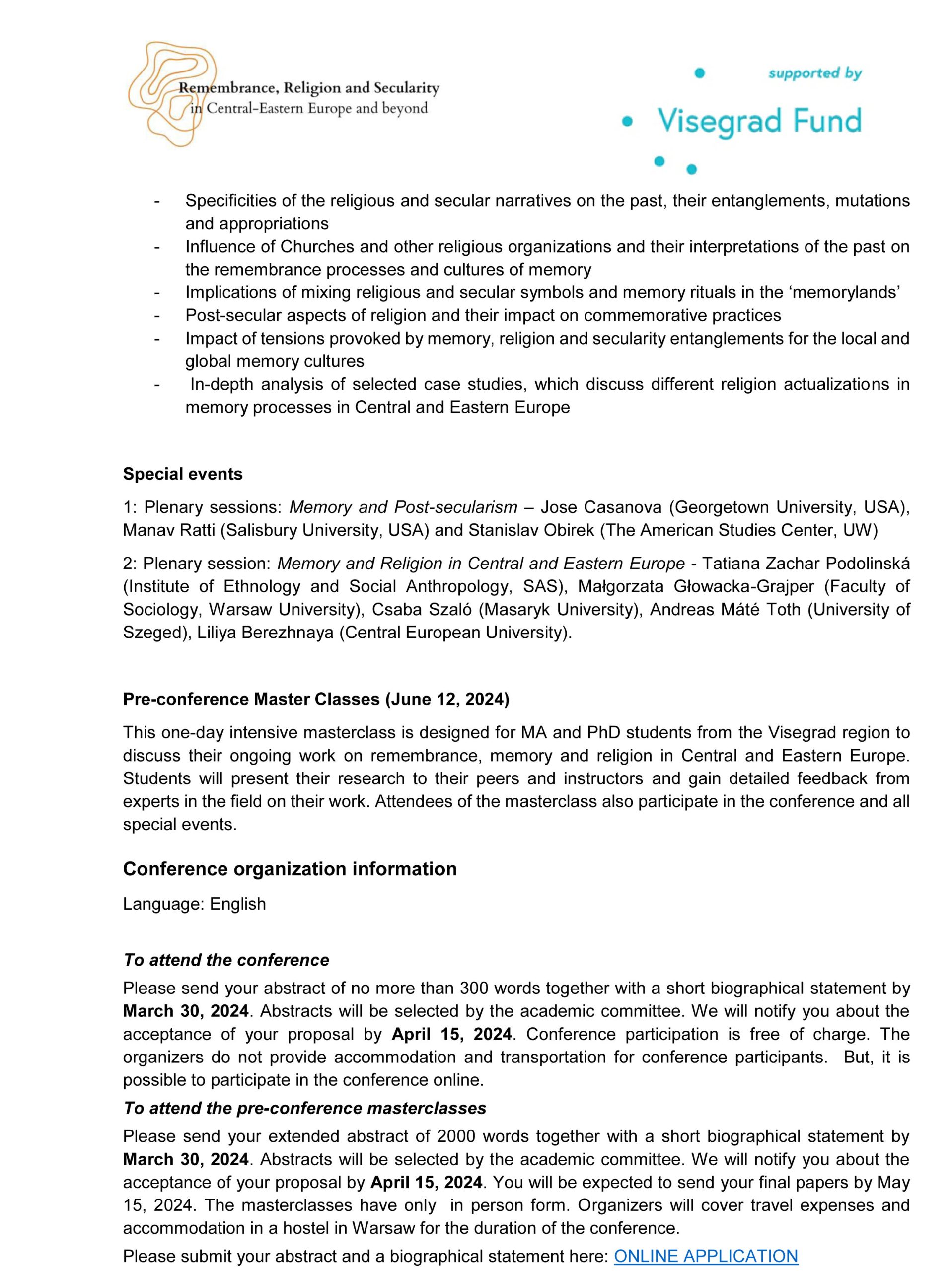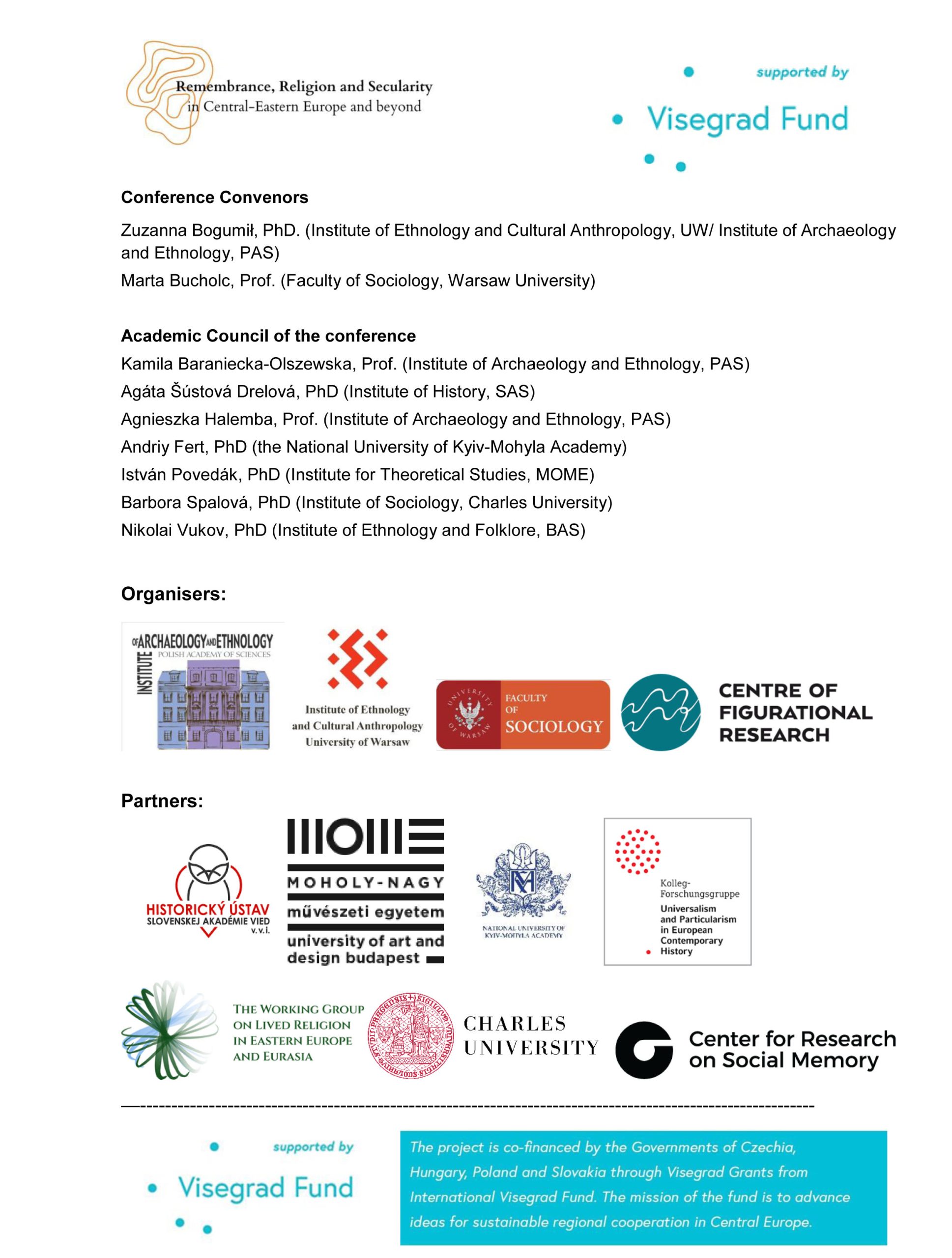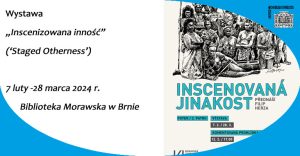
Wystawa „Inscenizowana inność” (‘Staged Otherness’) - 7 luty -28 marca 2024 r. Biblioteka Morawska w Brnie
11 marca 2024
Nataliacoments closedW dniach od 7 lutego do 28 marca 2024 r. w Bibliotece Morawskiej w Brnie (Czechy) można oglądać wystawę pt.
„Inscenizowana inność” (‘Staged Otherness’).
Wystawa powstała w ramach realizacji projektu NCN UMO-2015/19/B/HS3/02143, dotyczącego pokazów etnograficznych w krajach Europy Środkowej i Wschodniej, zrealizowanego pod kierunkiem prof. Dagnosława Demskiego.
Oficjalne otwarcie wystawy w Bibliotece Morawskiej odbyło się 12 lutego 2024 r. Towarzyszył temu wykład jednego ze współautorów wystawy – dr. Filipa Herzy z Instytutu Etnologii Czeskiej Akademii Nauk w Pradze.
Wcześniej wystawa została zaprezentowana w Rydze (Łotwa, 2022), Tartu (Estonia, 2022) i Warszawie (2023). W wersji online dostępna jest ona pod adresem: https://stagedotherness.eu/about/
Zdjęcia z otwarcia: (źródło) Moravska Zemska Knihovna.
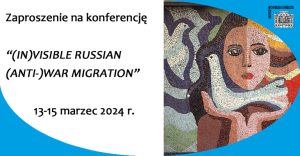
Zaproszenie na konferencję "(IN)VISIBLE RUSSIAN (ANTI-)WAR MIGRATION" - 13-15 marca 2024 r.
07 marca 2024
Nataliacoments closed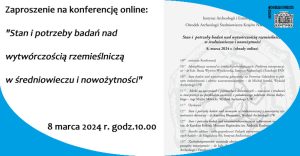
Zaproszenie na konferencję online: "Stan i potrzeby badań nad wytwórczością rzemieślniczą w średniowieczu i nowożytności" - 8 marca 2024 r. godz.10.00
27 lutego 2024
Nataliacoments closed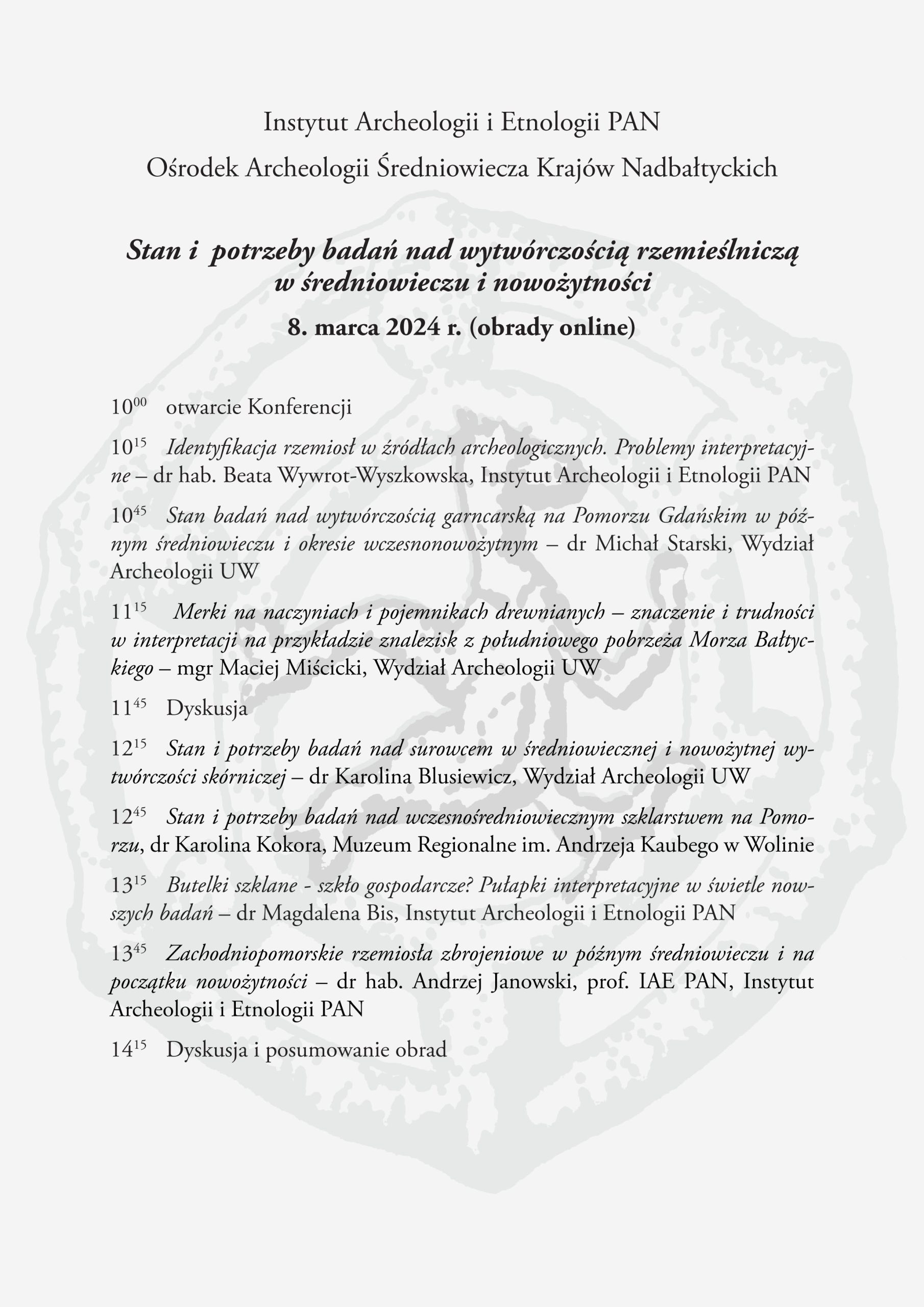
Ośrodek Archeologii Średniowiecza Krajów Nadbałtyckich IAE PAN
zaprasza do udziału w konferencji
"Stan i potrzeby badań nad wytwórczością rzemieślniczą w średniowieczu i nowożytności",
która odbędzie się 8. marca 2024,
w trybie online w godzinach 10-15
Link do spotkania: https://tiny.pl/dxc4v
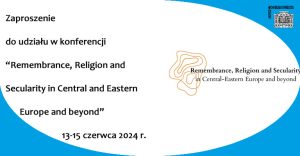
Zaproszenie do udziału w konferencji “Remembrance, Religion and Secularity in Central and Eastern Europe and beyond” - 13-15 czerwca 2024 r.
26 lutego 2024
Nataliacoments closedRemembrance, Religion and Secularity in Central and Eastern Europe and beyond
This conference aims to discuss how religion mobilizes and is mobilized in memory work, and how it affects remembrance processes in Central and Eastern Europe and beyond. Even a cursory look at the European ‘memorylands’ shows clearly that the tension between religion and the secular is part of a number of heterogeneous and contradictory memory projects. However, while both memory and religion in post-socialist Europe have been intensively researched, the relationships between memory, religion, and secularity deserve deeper consideration, particularly in light of the movement of the secular into the religious and vice versa; these entanglements, mutations, appropriations and translations are visible not only in the region but also beyond it.
The starting points for this conference are five general assumptions. First, secularism and religion vary in different societies and therefore require sensitive analysis that pays attention to specific historical and contemporary configurations of the societies in question. Second, the experience of forced secularization under communism, and subsequent religious revival, has resulted in religion taking an active part in the public sphere of this region, including remembrance processes. Third, post-conflict societies are prone to work through the past and thus look for various explanatory narratives, some of which are religious. Fourth, most of the post-secular theoretical concepts have been developed in the West to describe Western societies. Their applicability to post-socialist societies, therefore, requires a reconceptualization tailored to the unique cultural and historical context of this region. Finally, in addition to subordination to the Soviet Union during the communist period, the region has experienced other colonialisms, all of which have had a significant impact on its religions, secularities and memory processes. Decolonial studies, subaltern studies, and particularly postcolonial post-secular studies, which pay attention to the role of religion in decolonial processes, seem promising when combined with and as a challenge to post-socialist studies. During the conference we plan to discusses what all of these factors mean for remembrance processes and cultures of memory in Central and Eastern Europe.
The conference has evolved from the project “Post-secular approach to memory processes in Central-Eastern Europe” https://iaepan.edu.pl/post-secular-approach-to-memory.../', hosted by the Institute of Archaeology and Ethnology, Polish Academy of Sciences, and supported by International Visegrad Fund (ID 22230096, 2023-2024).
- Theoretical reflection on memory, religion and secularity with a particular focus on their entanglements in post-socialist countries
- Hybridization of methodological apparatus of memory categories with vernacular concepts coming from Eastern European national academia, but also with concepts coming from decolonial studies, subaltern studies, and post-colonial post-secular studies to better understand particularities of the memory situation of the region
- Role, place and impact of memory on re-enchantment processes in Central and Eastern Europe
- Specificities of the religious and secular narratives on the past, their entanglements, mutations and appropriations
- Influence of Churches and other religious organizations and their interpretations of the past on the remembrance processes and cultures of memory
- Implications of mixing religious and secular symbols and memory rituals in the ‘memorylands’
- Post-secular aspects of religion and their impact on commemorative practices
- Impact of tensions provoked by memory, religion and secularity entanglements for the local and global memory cultures
- In-depth analysis of selected case studies, which discuss different religion actualizations in memory processes in Central and Eastern Europe
1: Plenary sessions: Memory and Post-secularism – Jose Casanova (Georgetown University, USA), Manav Ratti (Salisbury University, USA) and Stanislav Obirek (The American Studies Center, UW)
2: Plenary session: Memory and Religion in Central and Eastern Europe - Tatiana Zachar Podolinská (Institute of Ethnology and Social Anthropology, SAS), Małgorzata Głowacka-Grajper (Faculty of Sociology, Warsaw University), Csaba Szaló (Masaryk University), Andreas Máté Toth (University of Szeged), Liliya Berezhnaya (Central European University).
Pre-conference Master Classes (June 12, 2024)
This one-day intensive masterclass is designed for MA and PhD students from the Visegrad region to discuss their ongoing work on remembrance, memory and religion in Central and Eastern Europe. Students will present their research to their peers and instructors and gain detailed feedback from experts in the field on their work. Attendees of the masterclass also participate in the conference and all special events.
Language: English
To attend the conference
Please send your abstract of no more than 300 words together with a short biographical statement by March 30, 2024. Abstracts will be selected by the academic committee. We will notify you about the acceptance of your proposal by April 15, 2024. Conference participation is free of charge. The organizers do not provide accommodation and transportation for conference participants. But, it is possible to participate in the conference online.
To attend the pre-conference masterclasses
Please send your extended abstract of 2000 words together with a short biographical statement by March 30, 2024. Abstracts will be selected by the academic committee. We will notify you about the acceptance of your proposal by April 15, 2024. You will be expected to send your final papers by May 15, 2024. The masterclasses have only in person form. Organizers will cover travel expenses and accommodation in a hostel in Warsaw for the duration of the conference.
Zuzanna Bogumił, PhD. (Institute of Ethnology and Cultural Anthropology, UW/ Institute of Archaeology and Ethnology, PAS)
Marta Bucholc, Prof. (Faculty of Sociology, Warsaw University)
Academic Council of the conference
Kamila Baraniecka-Olszewska, Prof. (Institute of Archaeology and Ethnology, PAS)
Agáta Šústová Drelová, PhD (Institute of History, SAS)
Agnieszka Halemba, Prof. (Institute of Archaeology and Ethnology, PAS)
Andriy Fert, PhD (the National University of Kyiv-Mohyla Academy)
István Povedák, PhD (Institute for Theoretical Studies, MOME)
Barbora Spalová, PhD (Institute of Sociology, Charles University)
Nikolai Vukov, PhD (Institute of Ethnology and Folklore, BAS)
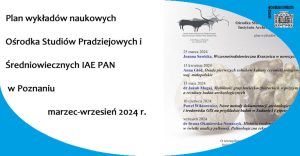
Plan wykładów naukowych Ośrodka Studiów Pradziejowych i Średniowiecznych IAE PAN w Poznaniu
14 lutego 2024
Nataliacoments closed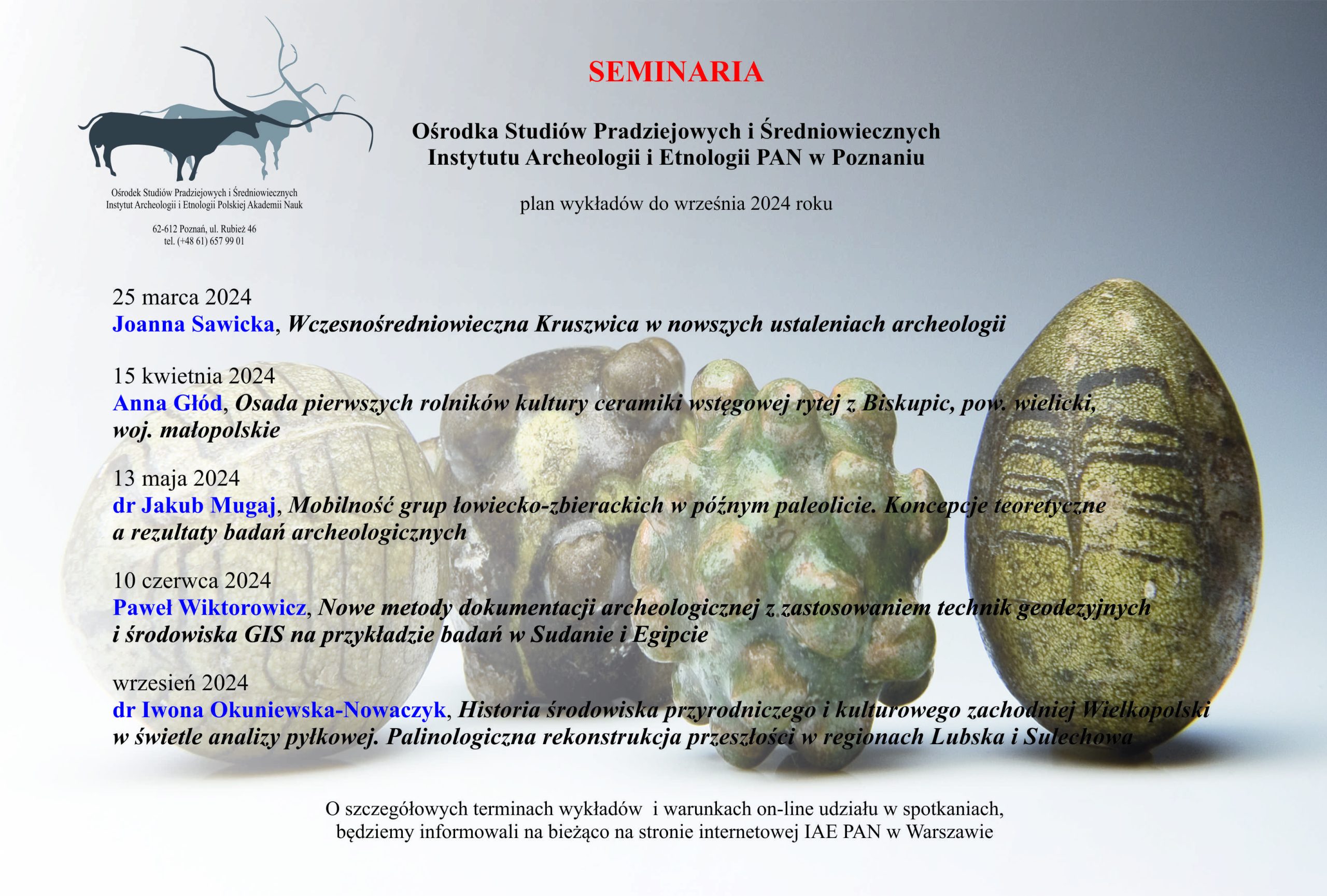
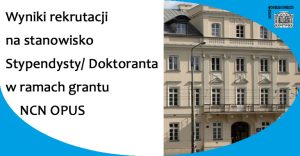
Wyniki rekrutacji na stanowisko Stypendysty/ Doktoranta w ramach grantu NCN OPUS
12 lutego 2024
Nataliacoments closedUprzejmie informujemy, że konkurs na stanowisko stypendysty/doktoranta w grancie NCN Opus „Kolekcje sporne. Nowe podejście do dziedzictwa pokazów etnograficznych w Europie Środkowej i Wschodniej" nr 2021/43/B/HS3/03009, pod kierownictwem dr hab. Dagnosława Demskiego został rozstrzygnięty.
Komisja konkursowa rekomendowała kandydaturę Pani mgr Agnieszki Pindery.
Gratulacje!

Zaproszenie na zabranie naukowe Ośrodka Archeologii Pradziejowej i Ośrodka Archeologii Historycznej IAE PAN - 15 luty 2024 r. godz. 11.00
06 lutego 2024
Nataliacoments closed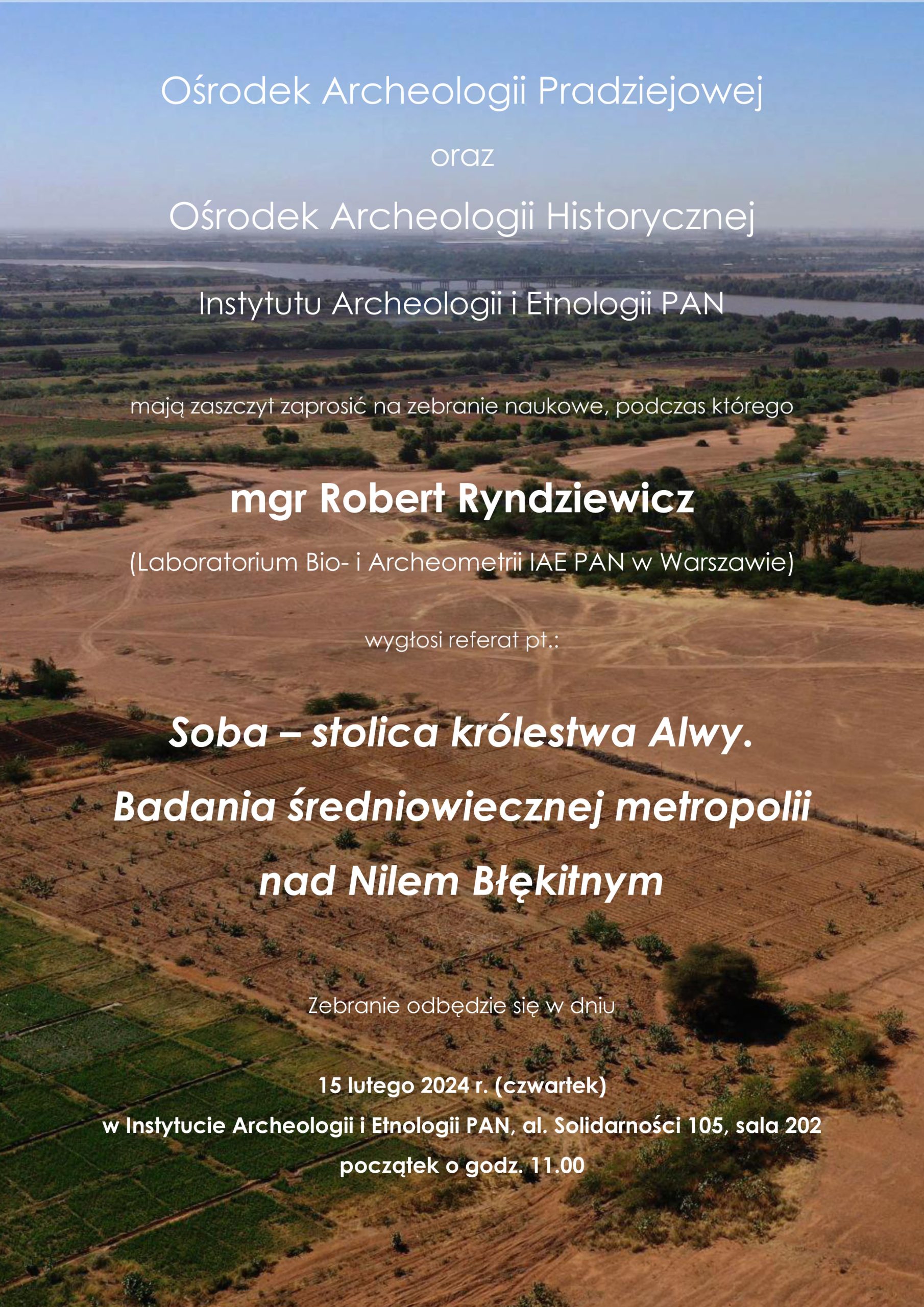
Ośrodek Archeologii Pradziejowej oraz Ośrodek Archeologii Historycznej Instytutu Archeologii i Etnologii PAN mają zaszczyt zaprosić na zebranie naukowe, podczas którego Pan mgr Robert Ryndziewicz (Laboratorium Bio- i Archeometrii IAE PAN w Warszawie) wygłosi referat pt.: Soba – stolica królestwa Alwy. Badania średniowiecznej metropolii nad Nilem Błękitnym.
Zebranie odbędzie się w dniu 15 lutego 2024 r. (czwartek) w Instytucie Archeologii i Etnologii PAN, al. Solidarności 105, sala 202, początek o godz. 11.00.
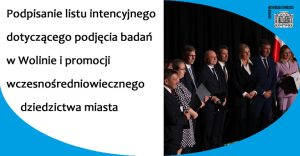
Podpisanie listu intencyjnego dotyczącego podjęcia badań w Wolinie i promocji wczesnośredniowiecznego dziedzictwa miasta
05 lutego 2024
Nataliacoments closed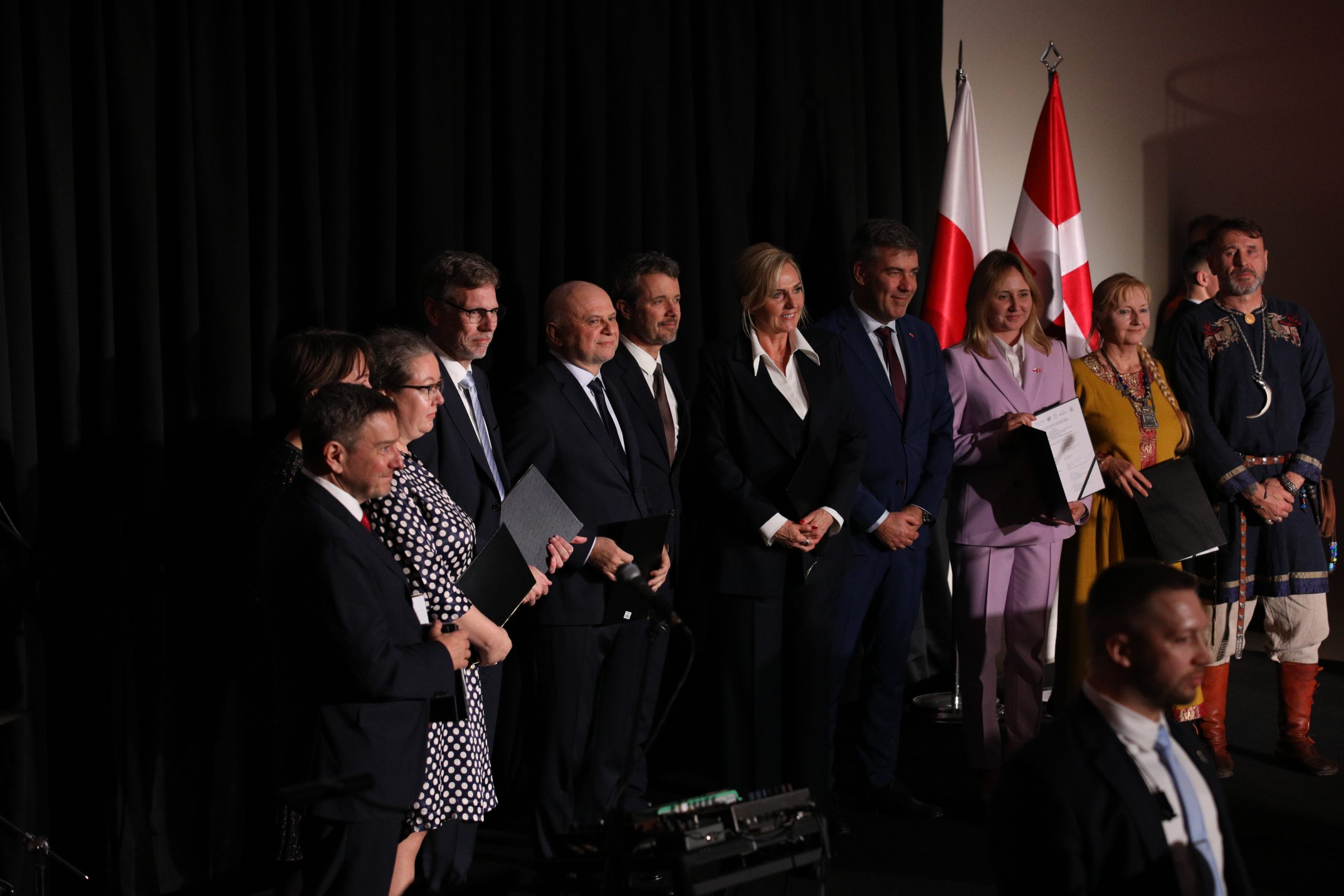
W dniu 1 lutego w Filharmonii Szczecińskiej, w obecności króla Danii Fryderyka X, Dyrektor Instytutu Archeologii i Etnologii PAN, prof. Marian Rębkowski podpisał z Uniwersytetem w Aarhus, Moesgaard Museum w Aarhus, Muzeum Regionalnym im. Andrzeja Kaubego w Wolinie, Gminą Wolin oraz Stowarzyszeniem Centrum Słowian i Wikingów Wolin-Jómsborg-Wineta list intencyjny dotyczący podjęcia badań w Wolinie i promocji wczesnośredniowiecznego dziedzictwa tego miasta.

Zaproszenie na seminarium Ośrodka Archeologii Starożytnej Grecji i Rzymu - 1 luty 2024 r. godz. 11.00
29 stycznia 2024
Nataliacoments closed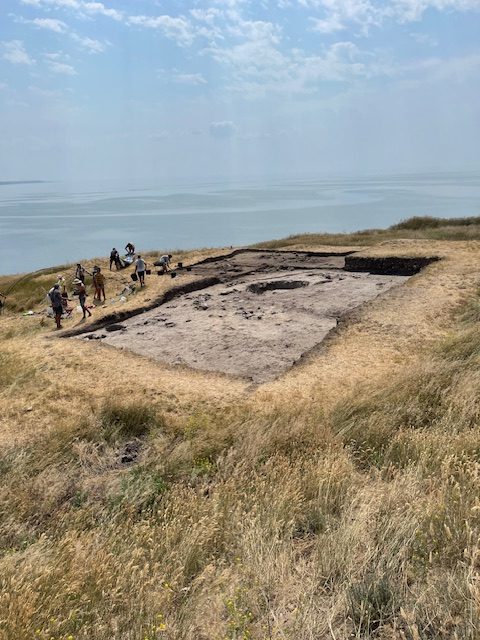
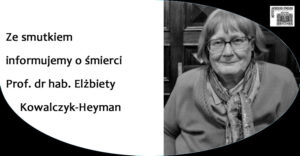
Ze smutkiem informujemy o śmierci Prof. dr hab. Elżbiety Kowalczyk-Heyman
17 stycznia 2024
Nataliacoments closed